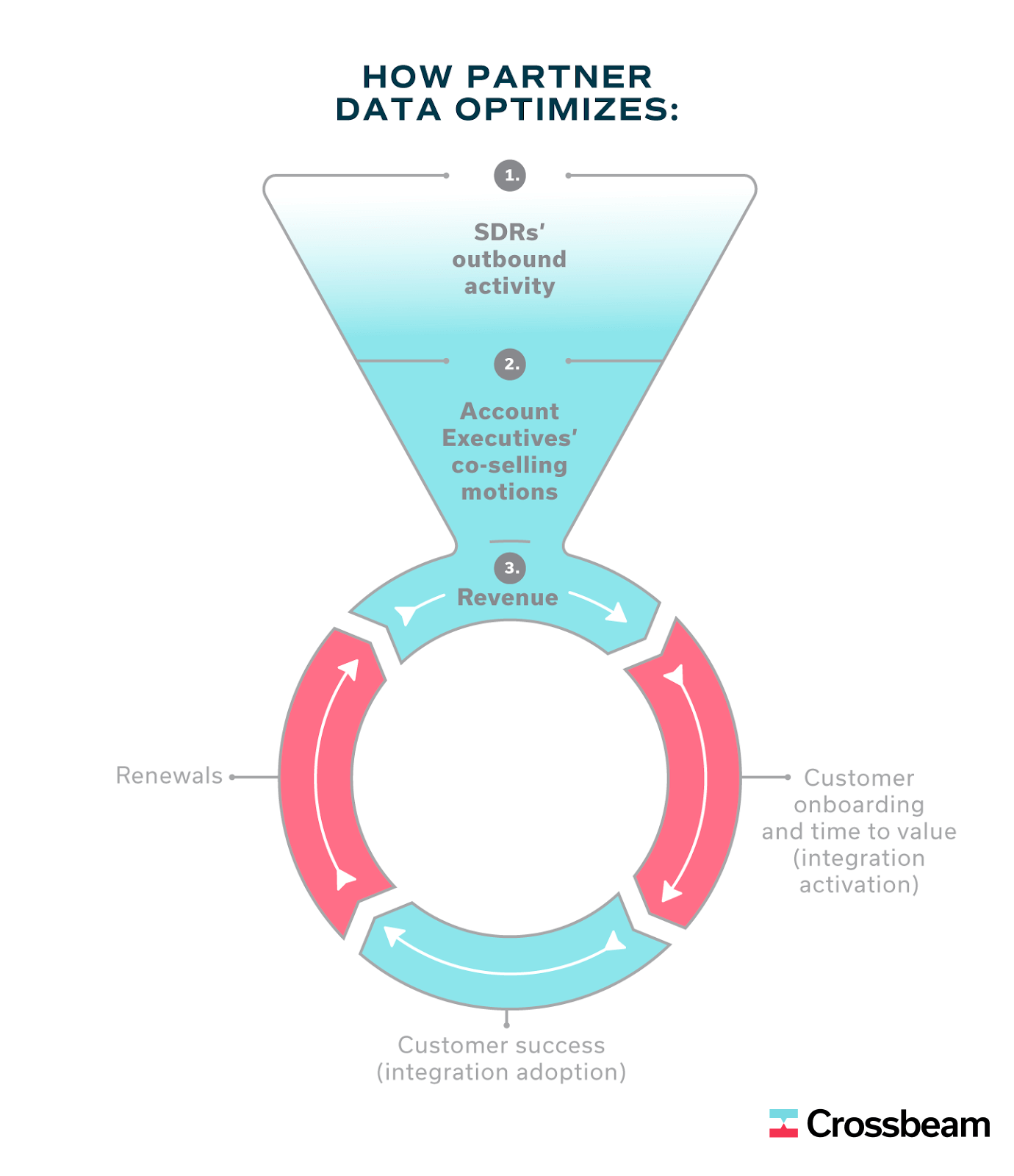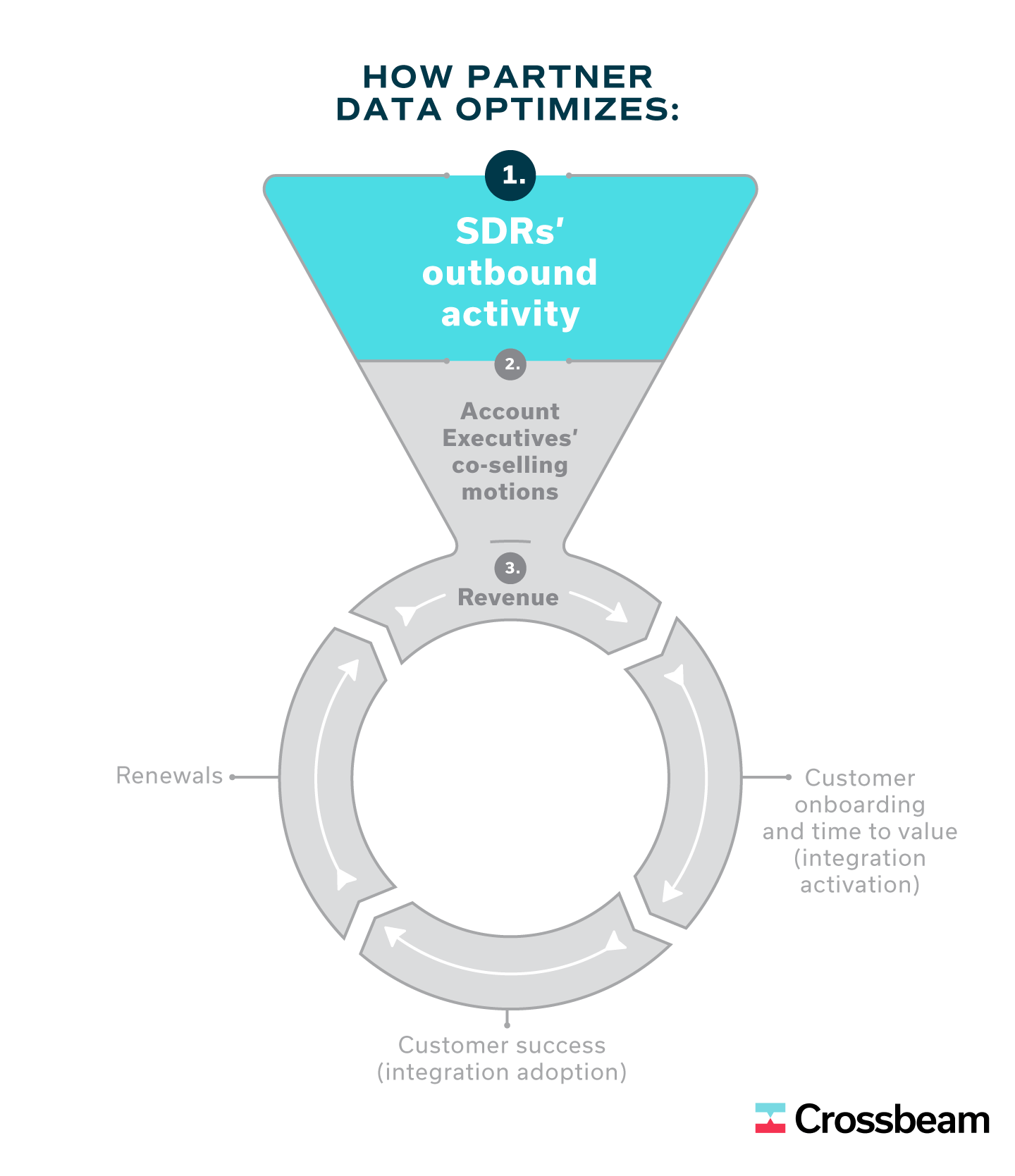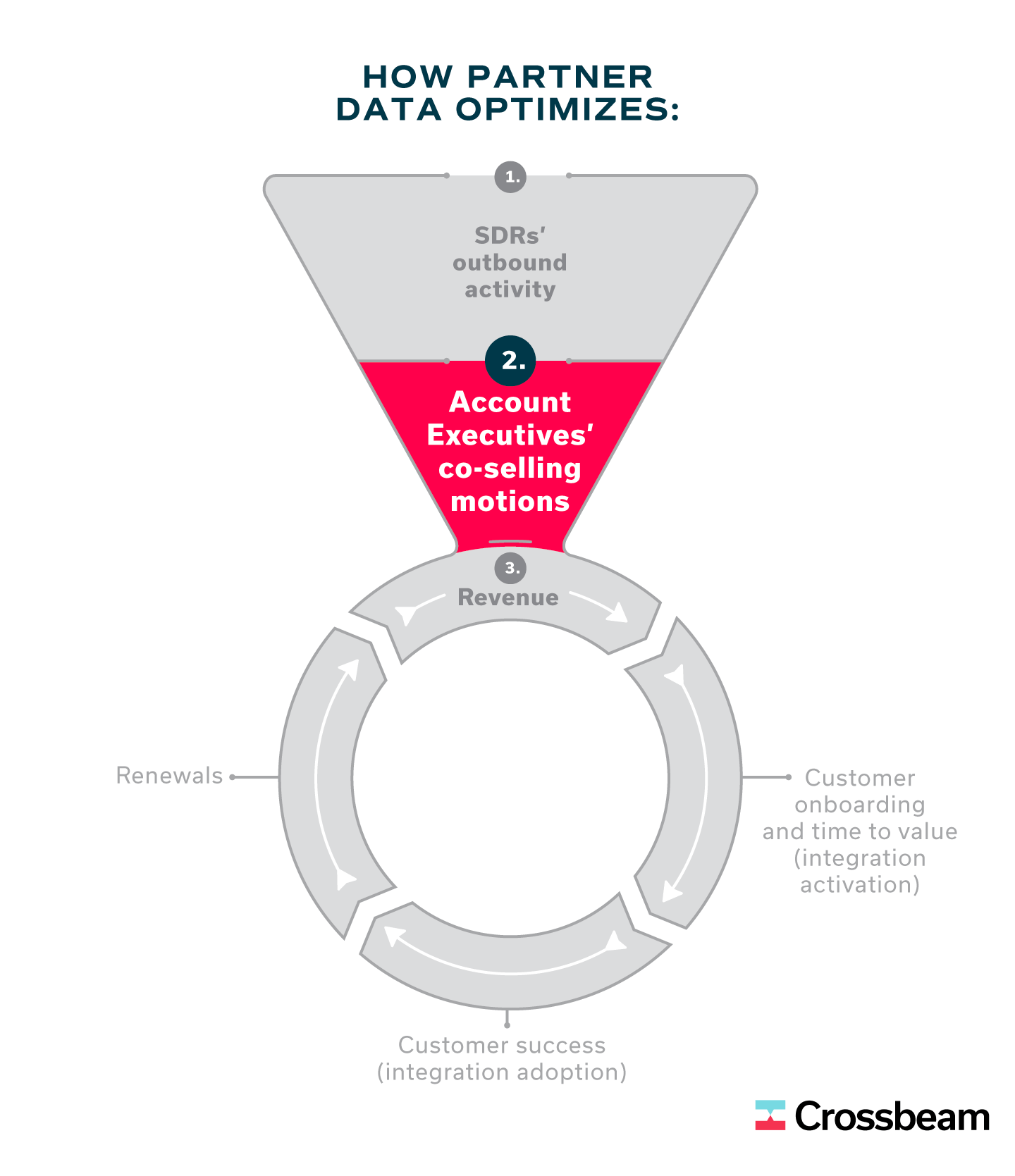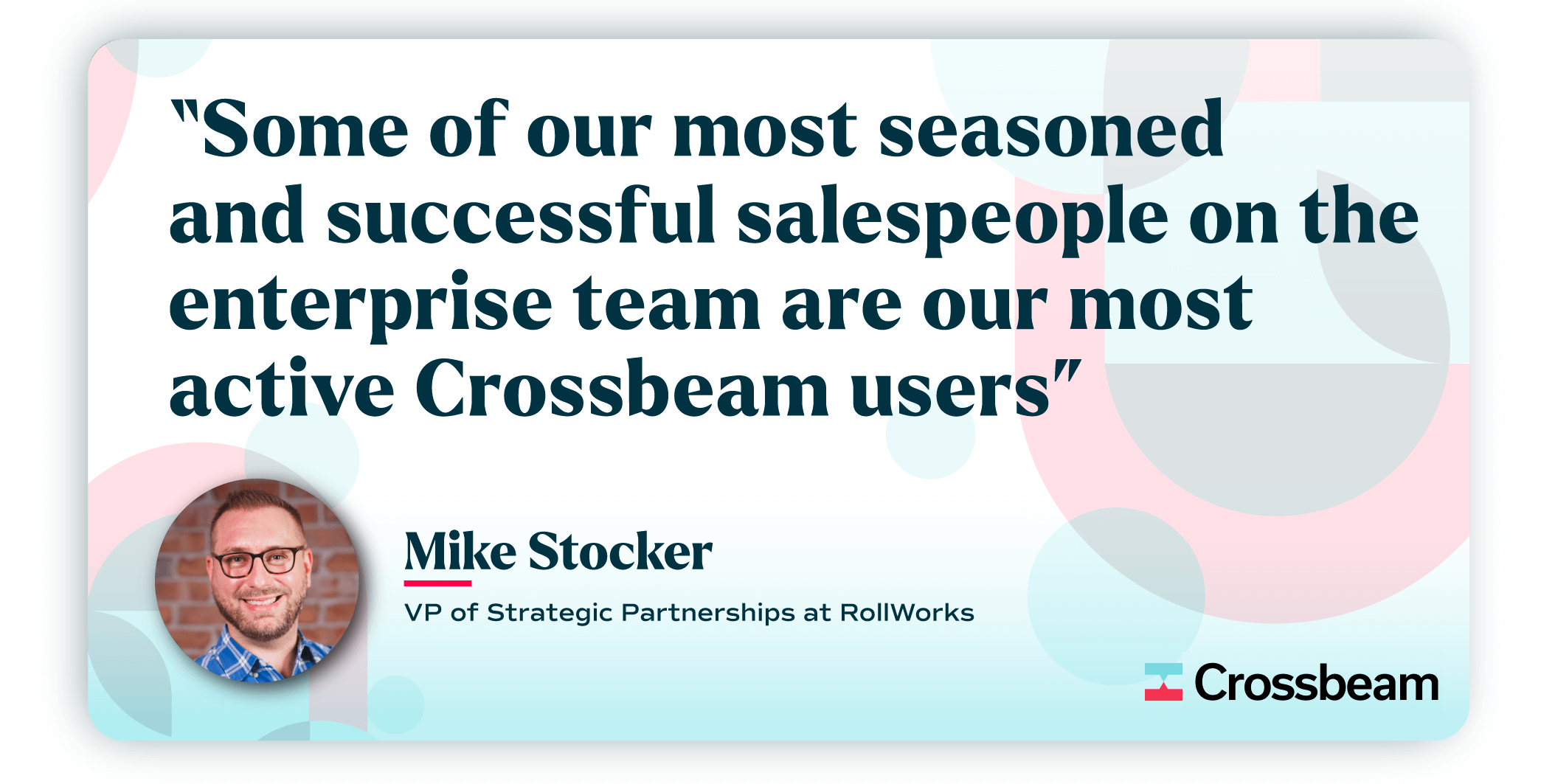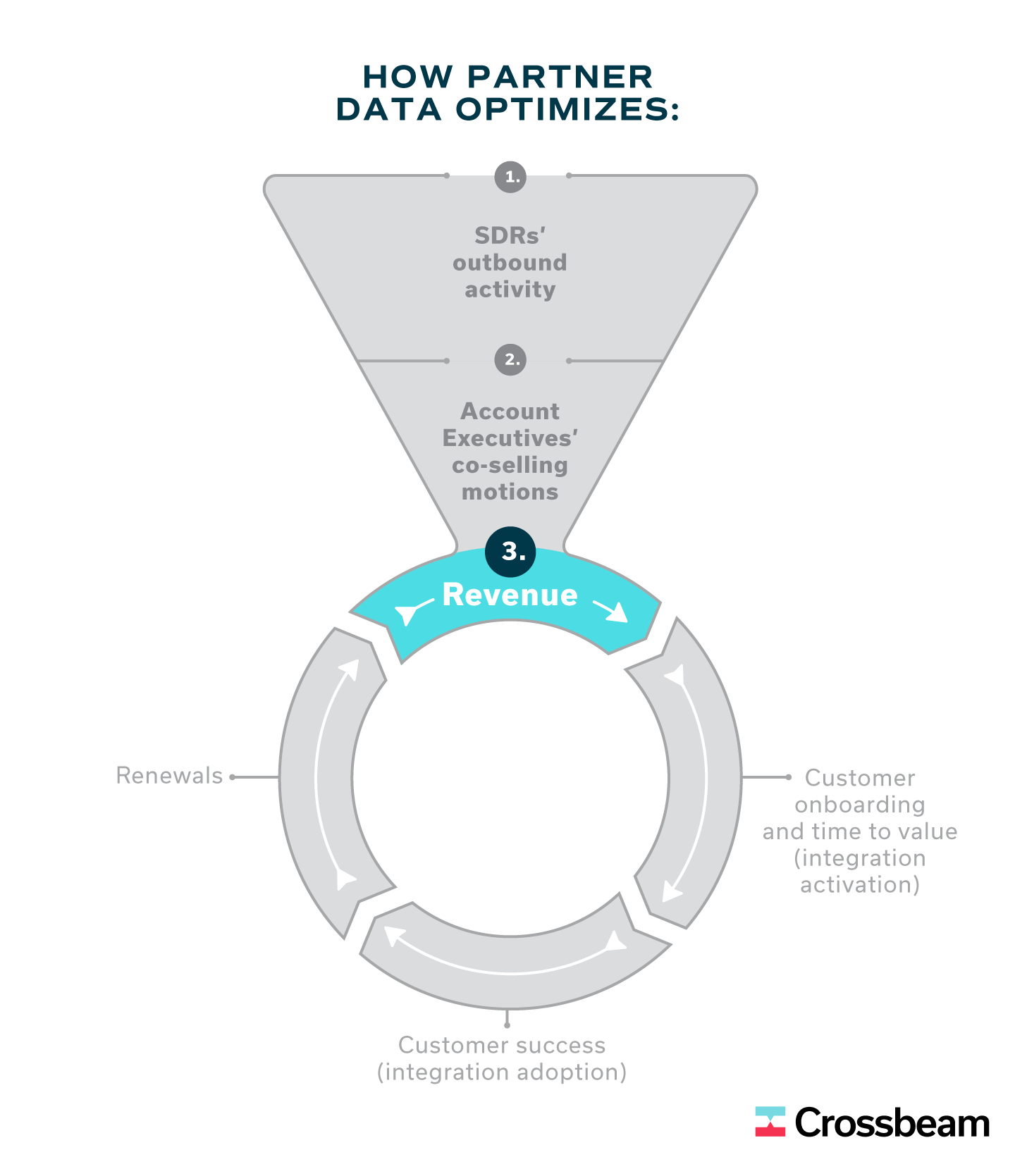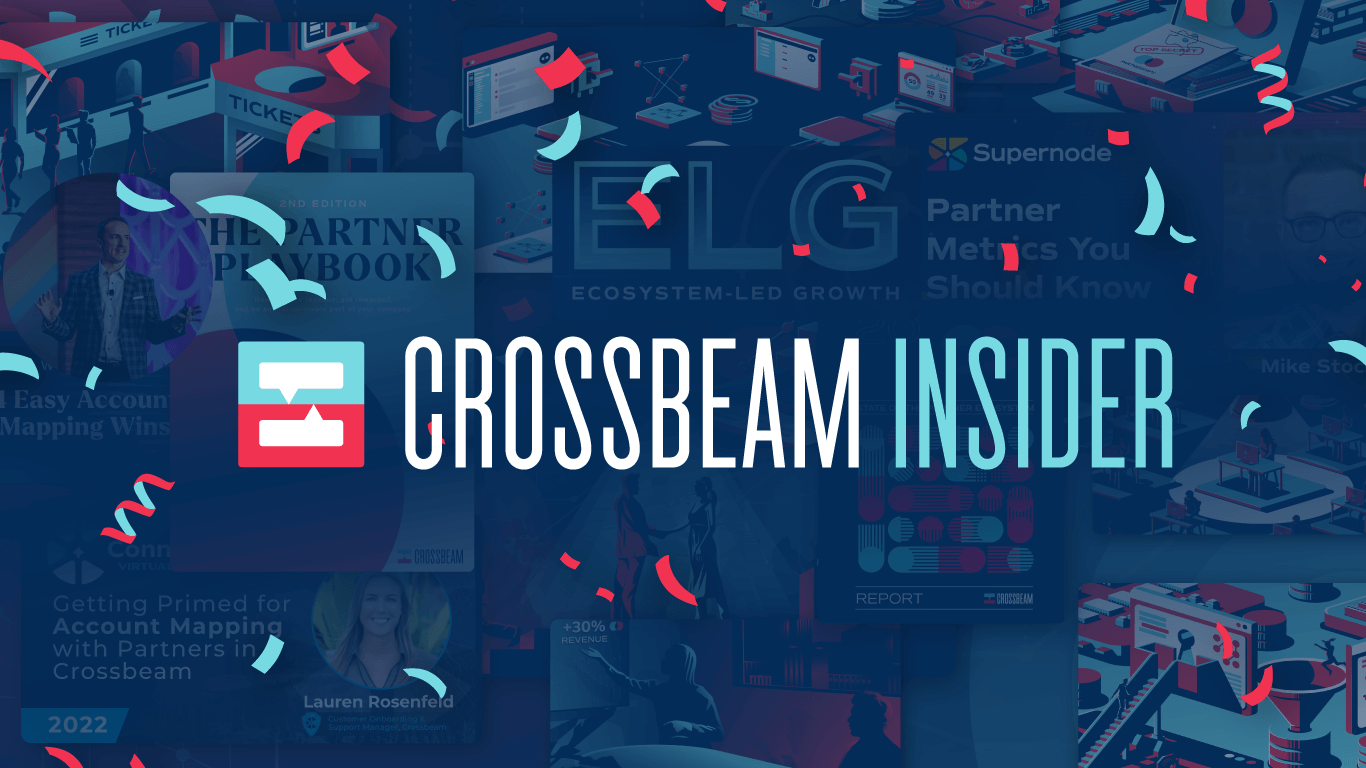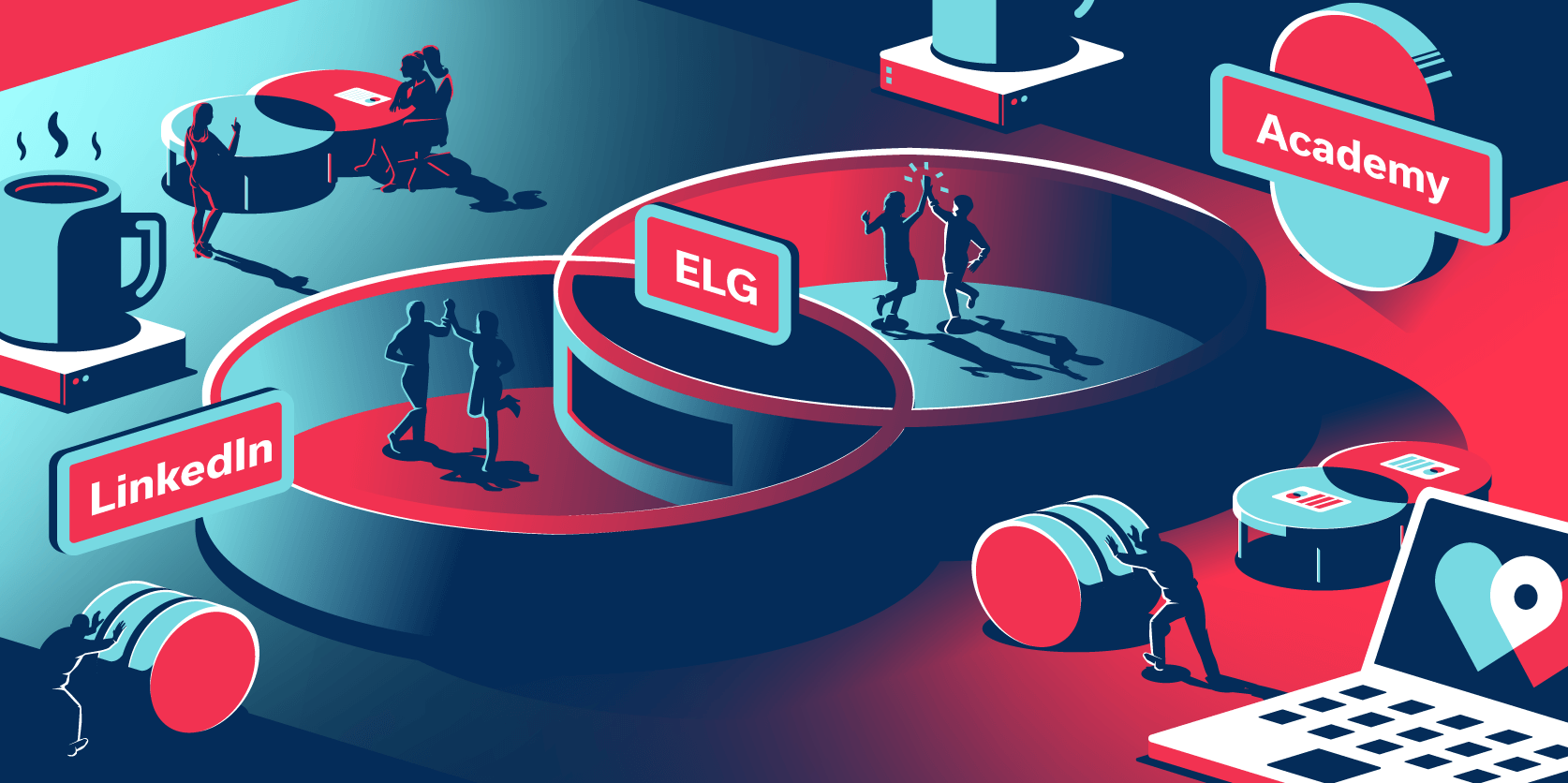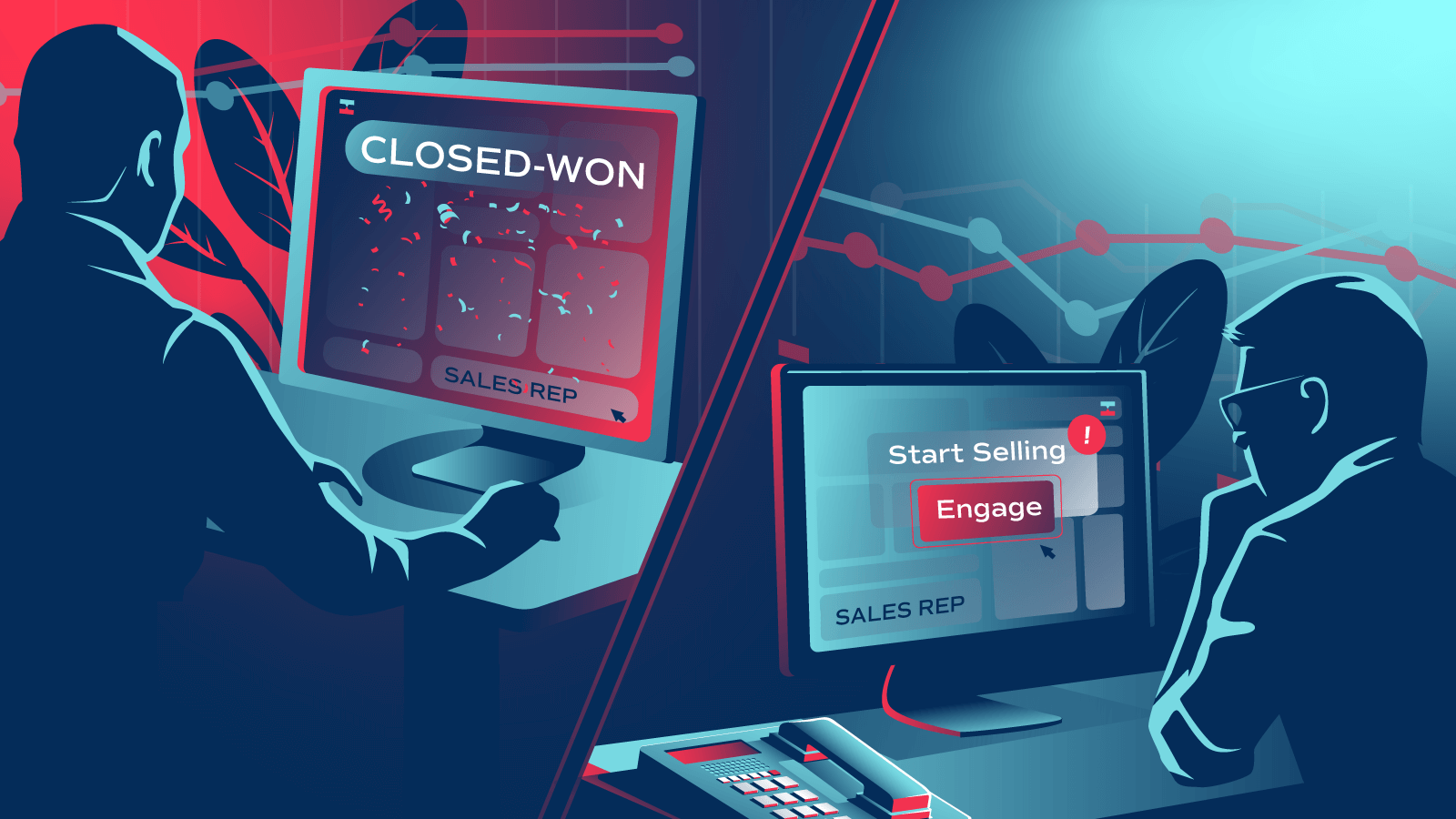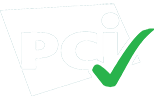Case Study
RollWorks Embraced the Partner Cloud. Now, They Have a 30% Increase in Retention.
Discover how RollWorks is using Crossbeam and its integrations with Salesforce, Slack, and Chrome to optimize its internal teams' workflows.

2019
Technology and agency partners
100
2-5 people
- Improving outbound outreach using partner insights
- Driving rep-to-rep co-selling
- Automating and tracking attribution
For your partnership team to really impact the bottom-line, weave account mapping data throughout your company. Take it from Mike Stocker, VP of Strategic Partnerships at RollWorks, a leading account-based marketing (ABM) platform.
“Our SDRs are using partner data. Our salespeople are using partner data. Then if we win the customer, our onboarding and customer success teams use partner data surfaced by Crossbeam too. Even our product team uses Crossbeam data to evaluate which integrations they should prioritize based on the number of mutual customers with partners,” says Stocker.
RollWorks invested in Partner Cloud integrations like Salesforce, Slack, and Chrome — and it has clearly paid off:
- Sales development reps (SDRs) use insights about prospects’ tech stacks to improve the relevancy of their email and phone outreach, driving more engagement with prospects. (Jump to this section)
- Account executives are using account mapping data to collaborate with partners to break into target accounts and advance existing deals. Partners influence approximately 80% of RollWorks’ deals. Those partner-influenced deals have a 10% higher annual contract value and close at a 66% higher rate than deals with no partner influence. (Jump to this section)
- Onboarding success managers use tech stack insights from Crossbeam to help customers activate integrations, accelerating customers’ time to first value by 16% and increasing integration adoption by 17%.
And the cherry on top of it all: RollWorks customers who are using at least one partner integration renew at a roughly 30% higher rate than customers who don’t.
“If you can go to any company and tell them they can provide a much better customer experience, increase time to first value, and improve their renewal rate by 30%, that’s like the holy grail for a SaaS business and they should actually be investing more in partnerships than they do,” says Stocker.
In this post, discover how RollWorks is using Crossbeam and its integrations with Salesforce, Slack, and Chrome to optimize its internal teams’ workflows.
Jump around to see how RollWorks uses partner data to…
1. Help SDRs Tailor Outbound Outreach Using Tech Stack Insights
Using Crossbeam for Salesforce, SDRs access partner data on prospect accounts or they view reports detailing which of their assigned accounts are customers of RollWorks’ tech partners. This visibility into prospects’ tech stacks makes it easier for the SDRs to prioritize their prospect lists for outbound emails and phone calls.
Additionally, SDRs use Crossbeam’s Chrome Extension to get alerted about partner overlap data while browsing prospects’ sites in Chrome. For instance, an SDR might learn that a high value prospect is a customer of a RollWorks tech partner — an opportunity for the SDR to highlight RollWorks’ integration in their outbound message and potentially break into a lucrative enterprise account.
Here’s an example of an outbound email a RollWorks SDR sent to an account it shares with HubSpot:
Hi [Prospect Name]Hope your summer is off to a great start! I was very excited to notice you are located in NJ as well! I live in South Jersey in a small town called Glassboro. I am always super excited when I get the chance to reach out to other NJ natives.
Since I noticed you are the director of marketing, I wanted to share how the RollWorks account-based platform is helping marketers use HubSpot to roll out successful account-based programs.
Whether you’re new to Account-Based Marketing or have a robust strategy, our HubSpot integration makes it easier to be account-based:
- Utilize HubSpot’s pre-built ABM Lists to segment known and unknown contacts at target accounts
- Dynamically sync contact lists to RollWorks
- View account engagement metrics in the HubSpot dashboard
- Align marketing and sales with RollWorks performance reports and dashboards
Visit our HubSpot page to learn more.Would you be interested in chatting Monday afternoon?Thanks,
[Sender Name]
2. Train and Empower Account Executives to Collaborate with Partners on Deals
Making partner data more easily accessible is only the first step to helping your internal teams. The second step is training, enabling, and empowering those teams to understand the value of partner data and how they can use it to run co-selling motions with partners.
Stocker has two training presentations for his sales and account executive teams, outlining:
- The mission of strategic partnerships at RollWorks so that everyone is crystal clear about the goals and expectations for how the partnerships and sales team should work together.
- An overview of Crossbeam — what the platform is, how it works, how to access account mapping data in Crossbeam, Slack, Chrome, and Salesforce, and how to use that data to put co-selling motions into action. “We don’t tell them they have to access partner data in a certain way. We just make the partner data available in as many ways as possible,” says Stocker.
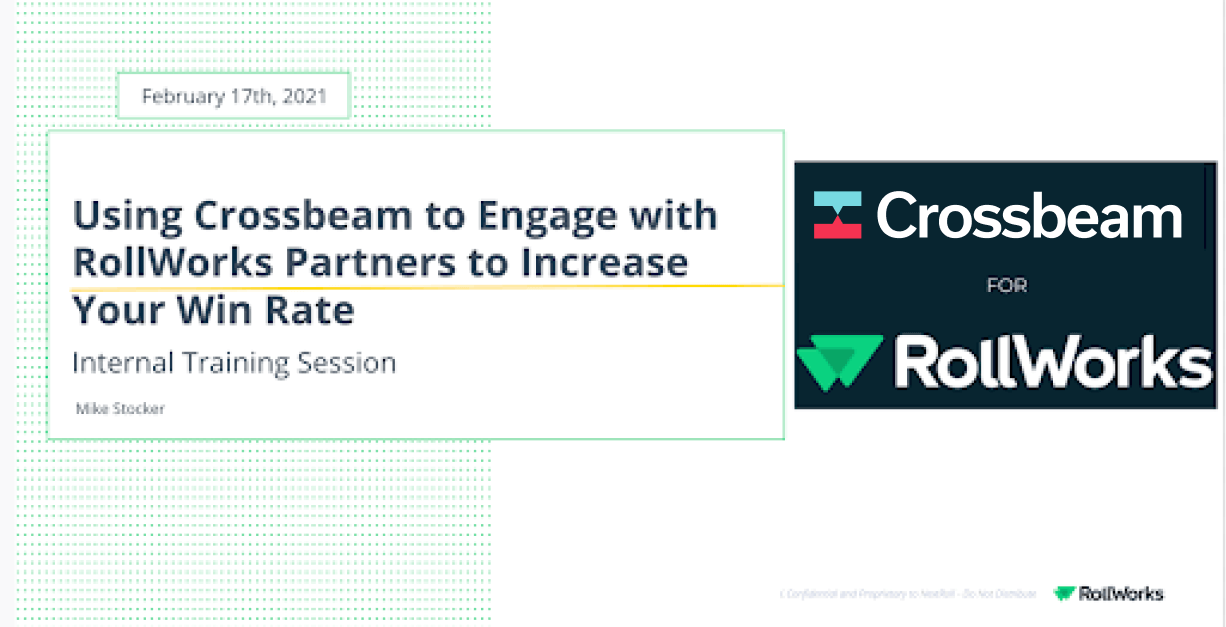
- Terminology — like partner-sourced deals and partner-influenced deals — to ensure everyone is speaking the same language. Stocker says a deal is considered partner-sourced “when a partner refers RollWorks to an account or brings RollWorks an opportunity that is net new.” A deal is partner-influenced if “a partner helps sales with the opportunity or was an important factor/consideration in the opportunity.” At RollWorks, any partner-sourced deal is also partner-influenced.
- Examples of partner-sourced and partner-influenced deals so account executives know how to spot opportunities to work with partners.
- An overview of partnership fields and data in Salesforce with guidance on how to track and measure partner-influence and partner-sourced opportunities (more on that later).
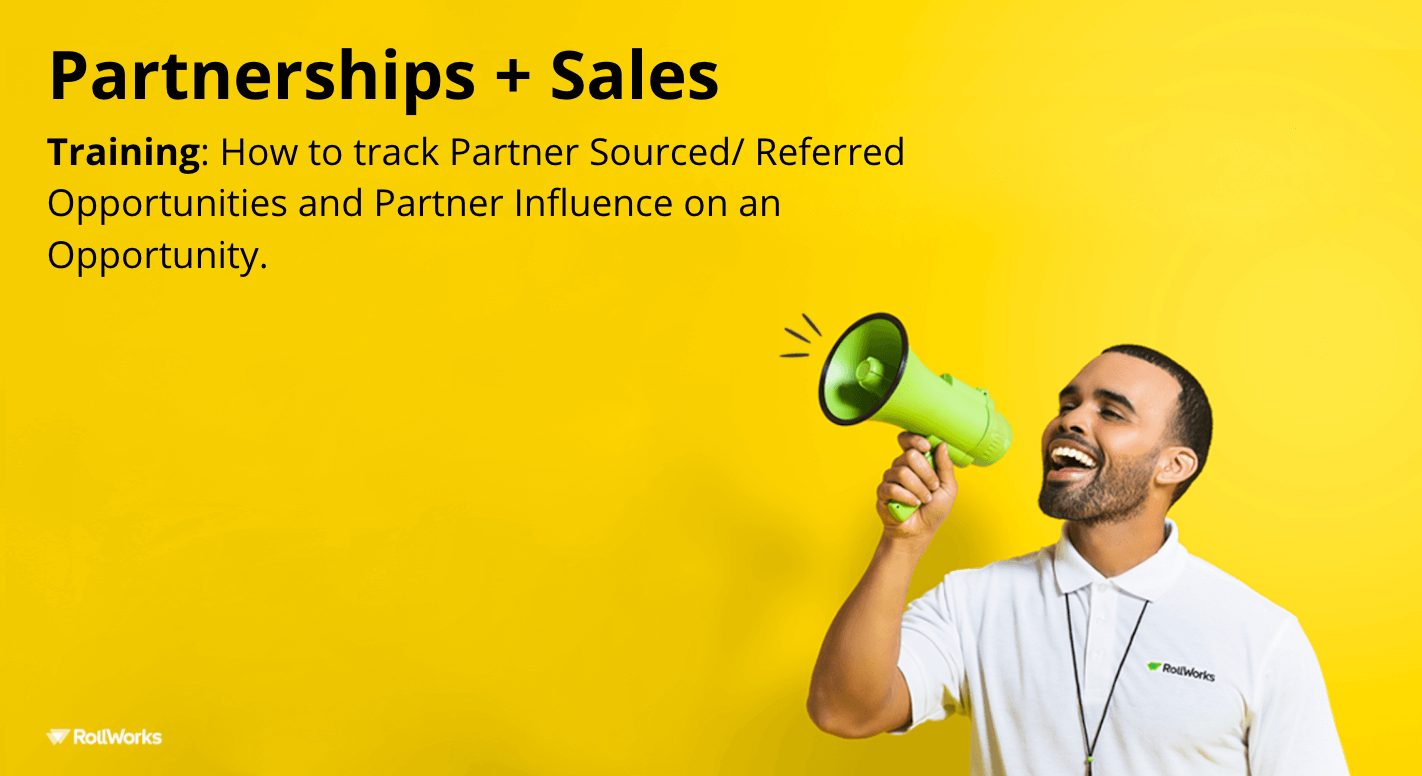
This training helps RollWorks’ account executives understand how to use account mapping data to work with partners on sales opportunities. “Some of our most seasoned and successful salespeople on the enterprise team are our most active Crossbeam users” says Stocker.
- An account executive attends a user conference or networking event hosted by a partner and walks away with a net new lead (sourced and influenced)
- RollWorks’ integration with a partner is a key reason why they win a deal at an account (influenced)
- If a partner hops on a prospect call with RollWorks to co-sell into a mutual account or if a partner chats with a RollWorks account executive to share intel and compare notes about an account (influenced)
- If a partner sends a direct referral or lead to RollWorks (sourced and influenced)
- If RollWorks gets a renewal or upsell opportunity and the customer mentions it is because of a specific partner (influenced)
“We are using all of Crossbeam’s capabilities. We’ve created individualized reports for every account manager, customer success manager, salesperson, and account executive. We’ve embedded Crossbeam data in our Salesforce and we’ve rolled out Crossbeam for Slack to the whole company,” says Stocker.
Multiple teams at RollWorks use Crossbeam’s Slack app to look up which partners share their accounts. All it takes is a simple “/Crossbeam” command and the account name — that’s it.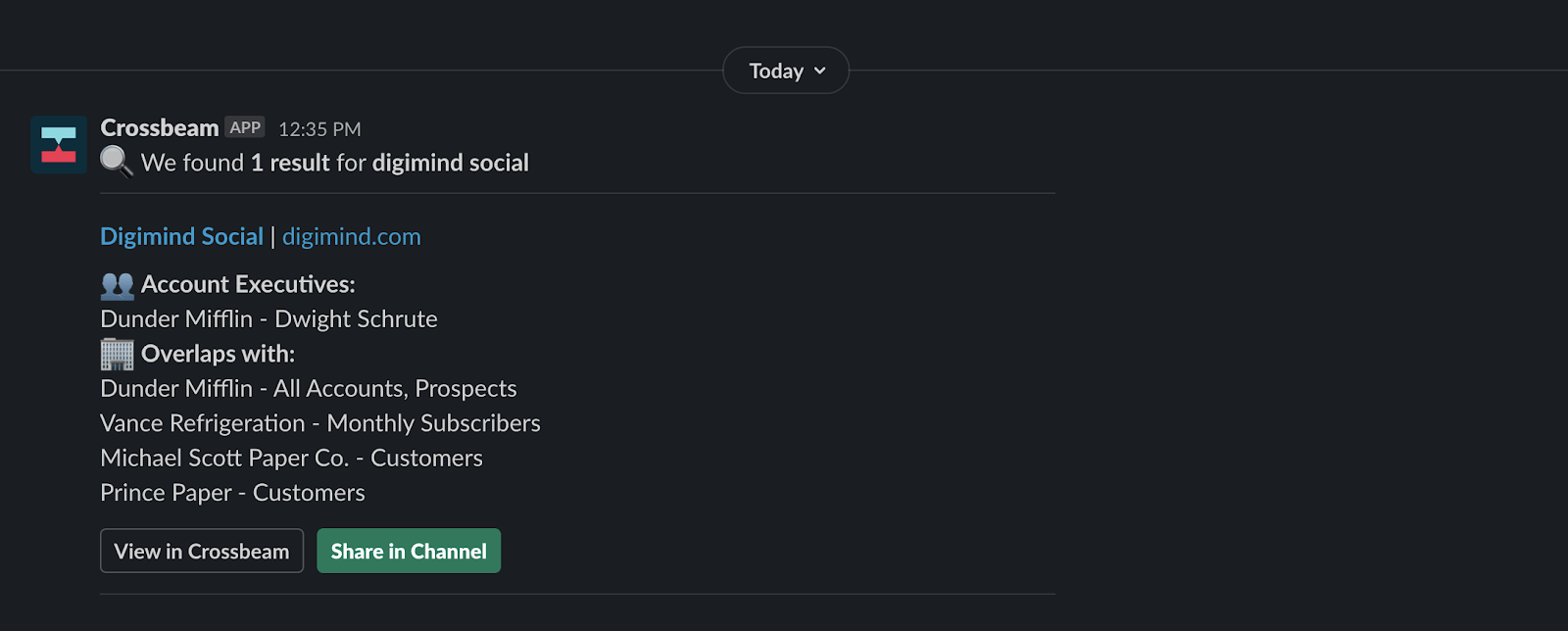
When an overlap is identified, either Stocker or the sales person from RollWorks hops into a Slack Connect channel with the partner to start strategizing co-selling motions or swapping intel about an account. “We have shared Slack Connect channels with most of our partners and we’ve enabled our teams to connect with partner teams to collaborate,” says Stocker.
RollWorks’ sales teams are seeing 66% higher win rates on partner-influenced deals and 10% higher annual contract volumes on those deals.
3. Automate the Measurement and Tracking of Partner-Influenced Revenue
63% of partnership professionals find getting attribution at least somewhat challenging, according to our 2021 State of the Partner Ecosystem Report — but not for RollWorks. Stocker has implemented workflows that funnel account mapping data into the hands of those who need it most, while also using Crossbeam, Salesforce, and Chorus to measure the impact of partnerships on RollWorks’ bottom line.
Here’s how Stocker manages and tracks attribution.
Build attribution fields in Salesforce
Stocker worked with his RevOps team to build a partnerships module in Salesforce that includes fields for partner-sourced and partner-influenced deals. “You can actually pick multiple partners, as well. That infrastructure is there,” he says.
Track Partner Mentions in Chorus and Automate Tagging in Salesforce
Stocker worked with his Sales Enablement and RevOps teams to build logic in Chorus so if a partner is mentioned three to four times in a sales call, Chorus will auto-mark the opportunity as “partner-influenced” in Salesforce and tag the partner’s name who was mentioned.
“As the sales reps are talking to a prospect, they actually have [account mapping] data in four different places that they can see. And so oftentimes, they may see that someone uses Sendoso through Crossbeam data, and they’ll mention Sendoso specifically on the call and then Chorus will pick it up and mark it,” says Stocker.
Errors are bound to happen, but it’s much easier for an account executive to go in and validate the partner-influence field vs working off of a blank slate. “At the end of each quarter, we ask the sales reps to validate it,” says Stocker. He’ll ask the reps, “Does it look right to you, were these partners involved or not?”
“I actually think all partner teams should be doing this because it solves the challenge of getting things marked and getting credit. It’s actually really elegant, and Crossbeam data has a part to play there,” he says.
(Pssst…Want to learn how RollWorks accelerated its customers’ time to first value by 16% and increased integration adoption by 17%? Read this article.)
–
By infusing partner data in various tools, Stocker has made partnerships a recognized contributor of revenue at RollWorks. Stocker says he’s also more focused on getting new partners and implementing strategic initiatives versus having to chase information and people down.
“Now I just feel like it works. The data is frequently updated. Crossbeam is reliable. The data is available. I don’t have to be in the middle of everything,” says Stocker.
“Crossbeam is allowing us to be much more scalable with how we leverage partners. And then when you couple it with Slack Connect channels and Chorus and other things, you get a pretty robust program that doesn’t require a lot of active management.”
Turn your ecosystem into your #1 revenue source
Get started in under a minute. Instantly capture insights from your partners. Identify more opportunities. Did we mention it’s free?


